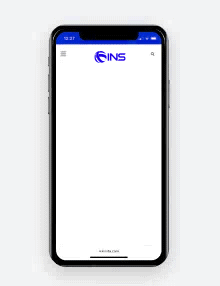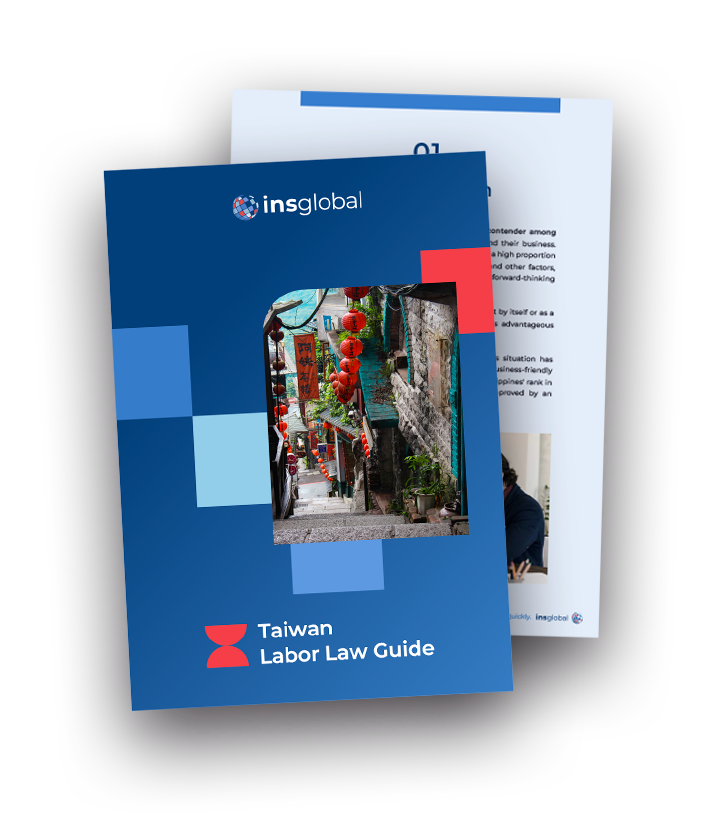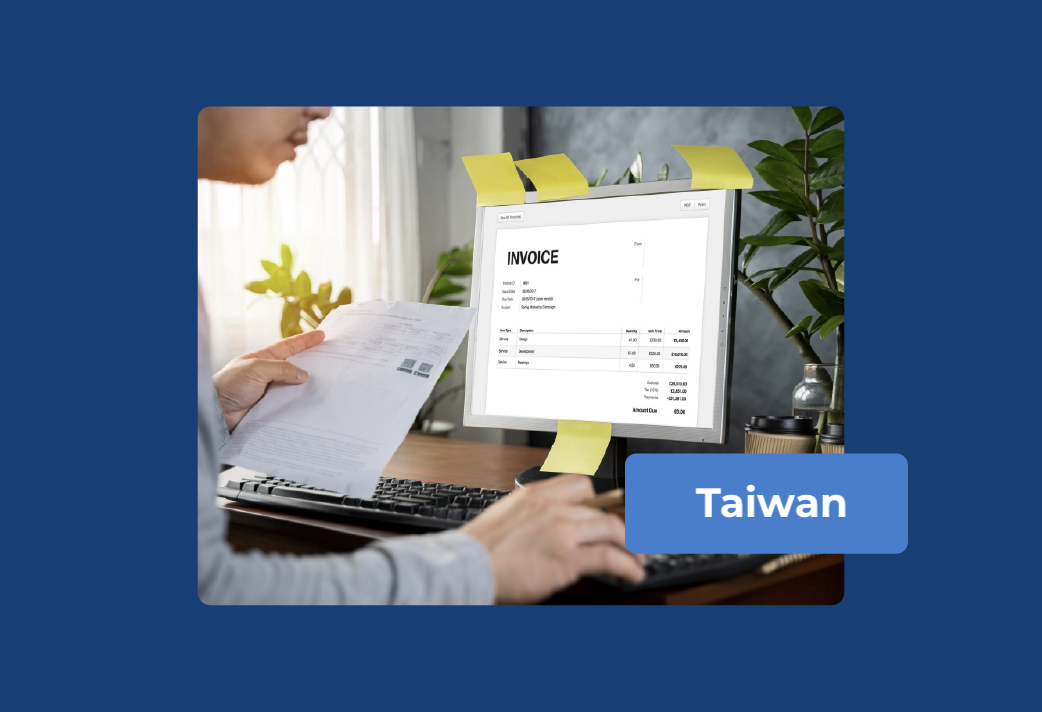Anyone working in a foreign environment should be aware of the relevant tax laws, but knowing the basics when the rules change can be tricky. While it might sound like a matter of convenience, invoicing electronically (also known as e-invoicing) will be obligatory for taxpayers in Taiwan, starting from 2021.
The new rule includes foreign-based entities operating in Taiwan, such as the many B2C companies providing digital services to local citizens. Compliance may require some labor-intensive phases and a change in processes by all companies in the region.

Tired of scrolling? Download a PDF version for easier offline reading and sharing with coworkers
In a hurry? Save this article as a PDF
Tired of scrolling? Download a PDF version for easier offline reading and sharing with coworkers.
Fill up the form below 👇🏼
Why E-Invoicing Now?
Despite being a hyper-modern economy with a focus on electronics, Taiwan’s invoice overhaul has been years in the making and has its roots in a desire to solve problems of logistical and trade bottlenecks and oversight across an array of industries. Mandatory E-Invoicing will mean a dual uptick in efficiency, which includes:
- A faster and more efficient processing of taxes.
- An obligation to produce and deliver the invoices.
- An organized system of record keeping.
Background to E-Invoicing In Taiwan
In the 1950s, Taiwan introduced a unique incentive scheme for invoicing: a lottery would be held, with your 8-digit invoice number acting as your ‘ticket’ and cash prizes given out based on a draw of 6 winning numbers. The lottery led to boosted tax revenues over the following decades and is still in place today.
From 2006 onwards, another innovation was brought in – e-invoicing. With the advent of more efficient and affordable Cloud computing services, digital invoicing began to spread around the globe from this time. In the beginning, e-invoicing was being tested – it did not cover all sectors and was not obligatory.
Changes to Multiple Industries in Taiwan
Taiwan’s 2015 applications in the food sector targeted Pricing and Product Quality, which was innovative at the time. This success and environmental factors led Taipei to seek to apply e-invoicing more thoroughly across more industries. Fast forward five years, and the success of the formula has led to the extension of paperless invoicing to all levels of tax.
For the first decade, there was opt-out clause for non-resident businesses, but that loophole began to close in 2017. It was officially withdrawn in 2019, with a compliance deadline set for January 2020. In 2020 it was announced that e-invoicing would be obligatory for all taxpayers from 2021 onwards.
Check Our Taiwan Labor Law Guide
Learn how the Taiwanese law is applied in all aspects and situations, from an employer and employee perspective

The Taiwanese Electronic Tax System
Taiwan has a special VAT system based on a Government Uniform Invoice (GUI). This is regulated by legislation regarding format and content, along with the time of being issued and the time window within which it must be completed and submitted to the Ministry of Finance (MoF). GUI numbers are given to VAT payers every two months.
Formerly, ‘Paper-computerized’ GUIs were generated and printed out before being sent, but from 2017 (for the environmental as well as the efficiency reasons we mention above), these began to be phased out. The new system employs entirely electronic versions, or eGUIs.
In the case of foreign companies, they cannot integrate directly into the Ministry of Finance’s system. Non-resident businesses must find a Taiwanese entity to do so.
For a Taiwanese entity, an eGUI number can be given, and financial elements can be shared with the MoF digitally – for each invoice, within 48 hours of being issued.
The eGUI format is MIG-3.2.1, based on XML.
Requirements for the E-Invoicing system
To complete the process successfully, a company must first meet the following criteria:
- Have an industrial and commercial certificate issued by the Ministry of the Economy
- Be working with a local electronic invoicing provider that can transmit invoices to the MoF
- Must have already asked for an eGUI serial number which is linked to the invoice
Electronic invoices must be digitally signed and submitted to the Ministry of Finance’s platform within 7 days of their issuance. Taiwan’s e-invoicing legislation also guarantees the storage of the documents for at least five years.
The eGUI contains information points like:
- eGUI numbers: It is key to assess the precise number of eGUI numbers needed, depending on what your business does.
- Reporting period: The bi-monthly tax settlement must fit with the eGUI numbers sent every two months.
- Lottery information: Taiwan lottery information must be appended every time.
- Email: Customer’s email address.
- Amounts: Amount paid for the service and products sold.
- B2C sales details: Details of sales and other info must be received at the MoF within the 48 hour time limit. This also needs to show the right eGUI numbers.
Problems with Previous Invoicing Systems
Formerly, ‘Paper-computerized’ GUIs were generated and printed out before being sent, but from 2017 (for the environmental as well as the efficiency reasons we mention above), these began to be phased out. The new system employs entirely electronic versions, or eGUIs.
In the case of foreign companies, they cannot integrate directly into the Ministry of Finance’s system. Non-resident businesses must find a Taiwanese entity to do so.
For a Taiwanese entity, an eGUI number can be given, and financial elements can be shared with the MoF digitally – for each invoice, within 48 hours of being issued.
The eGUI format is MIG-3.2.1, based on XML.
Future E-invoicing Trends
While there is a global trend towards digitalization of tax processes, it is not happening in a uniform way. In South and Central America, for instance, it is still largely restricted to B2B transactions, while Europe uses the technology in Business to government interactions.
The Asia-Pacific Region, with its complex trade corridors and many island nations, needs greater efficiency and upgrading to deal with problems like:
- Auditing of companies and reduction of fraud.
- Speeding up and automation of administrative work to prevent corruption and release innovation.
- Easing up transactions to be more competitive regionally and globally.
E-invoicing is seen as helpful in combating each of these issues and looks likely to be steadily adopted in the region, with Korea (where paperless transactions are the norm in many areas already), Taiwan, Hong Kong and India standing out as early adopters.
India’s electronic invoicing program, the GST e-Invoice/IRN System, applies only to high-value companies (500 Crore INR turnover or higher) at present, and was introduced as an optional invoicing track which will be phased into a mandatory one from this year onwards.
Vietnam meanwhile is set to introduce obligatory e-invoices by 2022. Japan is an outlier, as in
Japan cash and promissory notes dominate, and despite initiatives to bring in e-promissory notes, only 0.2% of companies have signed up to use them. The sphere of customs and trade is an exception, with the government aiming to make ‘one-stop’ paperless transactions the central method for clearing cargo.
Benefits of the New System
Overall, the adoption of e-invoicing in Taiwan is a step in the right direction. It will have various positive effects on the efficiency in tax filing, organization of records and also positively impacts the environment.
With other countries set to follow in the coming years the, the example set by Taiwan could impact the way these changes will be rolled out in the future.
How to Operate In Taiwan - Employer of Record Services
While the implementation of the new system may appear daunting, having a partner that is able to assist your enterprise in the transition could be highly beneficial.
INS Global has been operating in the region for more than 14 years and as such our team has vast knowledge of the processes and regulations. We will ensure your company remains compliant while setting up or performing transactions in Taiwan. Whether you are looking to employ staff, INS Global can assist you.

SHARE